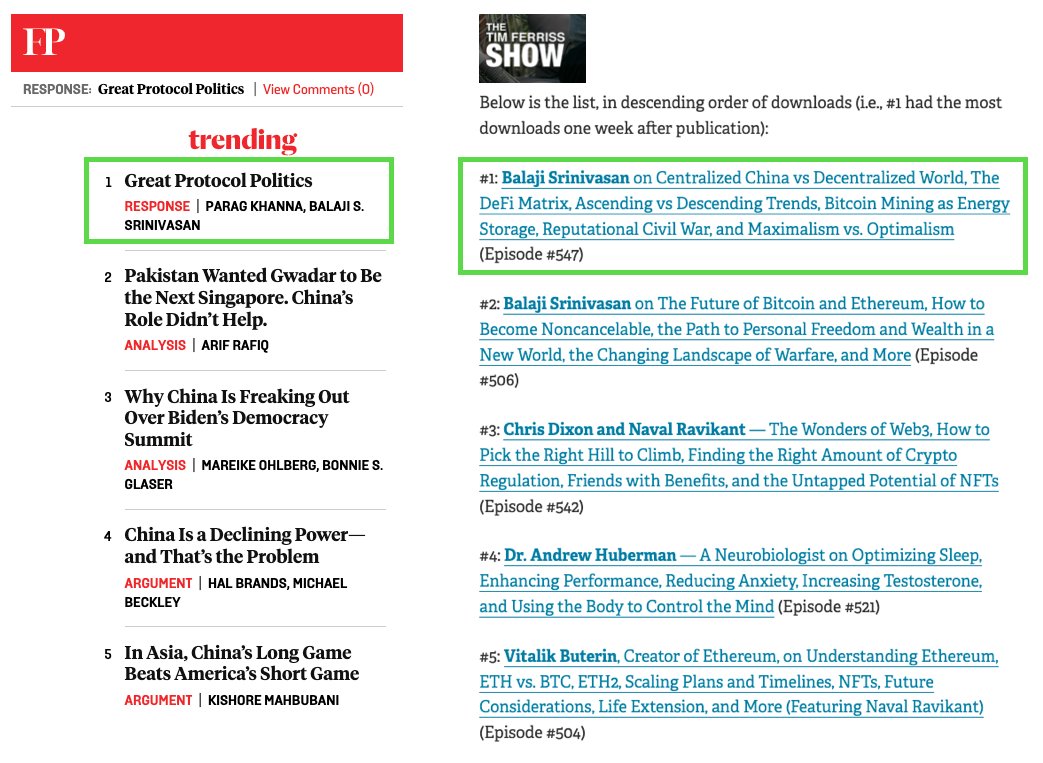
Thoughtful piece by Noah, even if I disagree with some specifics. In particular, I wouldn’t characterize currency competition as financial anarchy. Often it’s financial stability. In the past, dollarization restabilized inflationary economies. Today that may be bitcoinization. 

https://twitter.com/Noahpinion/status/1470662252730597376


Noah's post is worth reading in conjunction with this excellent thread by @AriDavidPaul on the possible/likely abuses of CBDCs.
I agree with many of the points here too, but there is a third angle...
I agree with many of the points here too, but there is a third angle...
https://twitter.com/AriDavidPaul/status/1456307668679811074
There have been two theses on central bank digital currencies like the digital yuan.
1) CBDCs boost efficiency
2) CBDCs enable tyranny
Here's a third:
3) Inter-CBDC competition may increase self-sovereignty
All three can happen. Not mutually exclusive.
foreignpolicy.com/2021/12/11/bit…
1) CBDCs boost efficiency
2) CBDCs enable tyranny
Here's a third:
3) Inter-CBDC competition may increase self-sovereignty
All three can happen. Not mutually exclusive.
foreignpolicy.com/2021/12/11/bit…

So, CBDCs can power up the state in a good way, boosting economic efficiency, as per Noah
They can power up the state in a bad way, enabling total financial surveillance, as per Ari
And they can power up the individual by enabling global currency competition, as per our piece
They can power up the state in a bad way, enabling total financial surveillance, as per Ari
And they can power up the individual by enabling global currency competition, as per our piece
• • •
Missing some Tweet in this thread? You can try to
force a refresh












